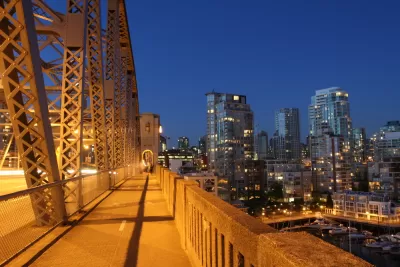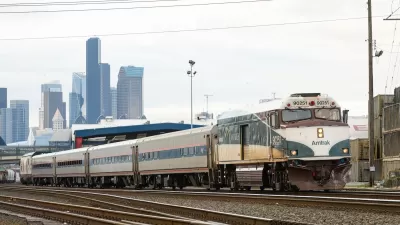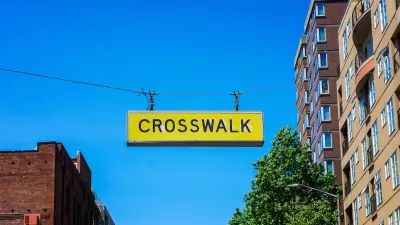Portland, Seattle, and Vancouver have all prioritized the design and implementation of bike infrastructure. A study of how each is implementing its goals reveals the many ways cities can decide to make healthy, active transportation a priority.

"It only takes a few minutes talking to transport honchos in Portland, Seattle, and Vancouver, BC, to get a sense of the intense, if friendly, competition among their cities to be king of the cycling hill," writes David Goldberg. "But in many ways the three largest urban centers of Cascadia form one big, soggy petri dish of experimentation in bike infrastructure."
Goldberg takes a look at what the cities have in common, and how they differ, in prioritizing complete streets and bicycle transportation. All three of the cities are making strides in building out connected networks of bike infrastructure, and all three have approved policies to signal their priority on quality bike infrastructure design.
After doing a side-by-side comparison of existing bike infrastructure in all three cities, Goldberg takes a more in-depth look at how each of the cities is prioritizing bike infrastructure to fit their geography and development history.
FULL STORY: Of Cascadia's Big Cities, Who's Tops in Bikeways?

Maui's Vacation Rental Debate Turns Ugly
Verbal attacks, misinformation campaigns and fistfights plague a high-stakes debate to convert thousands of vacation rentals into long-term housing.

Planetizen Federal Action Tracker
A weekly monitor of how Trump’s orders and actions are impacting planners and planning in America.

In Urban Planning, AI Prompting Could be the New Design Thinking
Creativity has long been key to great urban design. What if we see AI as our new creative partner?

How Trump's HUD Budget Proposal Would Harm Homelessness Response
Experts say the change to the HUD budget would make it more difficult to identify people who are homeless and connect them with services, and to prevent homelessness.

The Vast Potential of the Right-of-Way
One writer argues that the space between two building faces is the most important element of the built environment.

Florida Seniors Face Rising Homelessness Risk
High housing costs are pushing more seniors, many of them on a fixed income, into homelessness.
Urban Design for Planners 1: Software Tools
This six-course series explores essential urban design concepts using open source software and equips planners with the tools they need to participate fully in the urban design process.
Planning for Universal Design
Learn the tools for implementing Universal Design in planning regulations.
Gallatin County Department of Planning & Community Development
Heyer Gruel & Associates PA
JM Goldson LLC
City of Camden Redevelopment Agency
City of Astoria
Transportation Research & Education Center (TREC) at Portland State University
Jefferson Parish Government
Camden Redevelopment Agency
City of Claremont





























